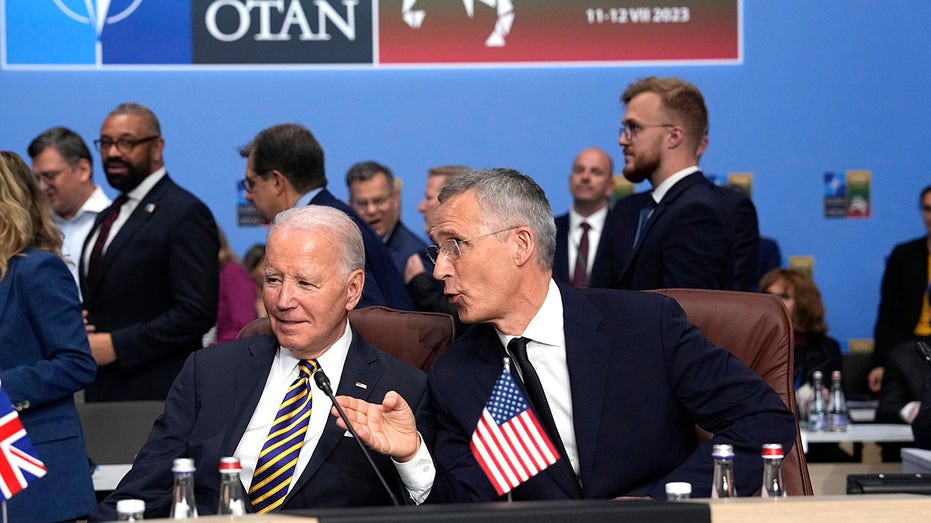NATO appears divided over pressure on Biden to lift the ban on attacks on the Ukrainian offensive

World leaders continue to meet in Washington, DC, to mark the 75th anniversary of NATO’s founding and to show a united front against Russia, whose war in Ukraine continues to rage.
But as the alliance comes together to strengthen its common defense and support Ukrainian President Volodymyr Zelensky in his front-line fight, some disagreements are also beginning to emerge.
With slogans such as “Whatever it costs” and “As long as it takes,” NATO allies are emphasizing their support for Ukraine against Russian President Vladimir Putin.
BLINKEN: US-built F-16 aircraft are on their way from Denmark and the Netherlands to Ukraine
In a similar tone, British Defense Secretary John Healey – new to the NATO game this week – told reporters on Wednesday from the British ambassador’s residence: “We will do everything we can to support Ukraine.”
But Zelensky’s key demands of NATO leaders – such as lifting Washington’s ban on attacking Russian military targets in Russia with U.S.-made weapons – are unlikely to be met as he desperately tries to contain Russia’s deadly attack.
In his speech on Tuesday evening at the Ronald Reagan Presidential Foundation and Institute building, just a block from the White House, Zelensky reiterated the importance of being able to attack Russian military targets in Russia.
But the Biden administration remains steadfast in its ban on attacks unless the military targets are near the border with Kharkiv Oblast in northern Ukraine, a region that has been hit by Russian missile attacks in recent months.
Zelensky says action against Putin cannot wait until US elections in November: “Step out of the shadows”
NATO Secretary General Jens Stoltenberg and several Baltic politicians, including Lithuanian Foreign Minister Gabrielius Landsbergis, have repeatedly called on the United States to abandon its offensive agreements to give Ukraine the opportunity to attack Russian targets offensively rather than remaining permanently on the defensive.
Key US allies such as Britain and France have also stated that they will not impose similar bans on attacks and will allow Ukraine to use the long-range missiles they supply at its own discretion.
But when asked whether the new British government would pressure the Biden administration to lift the ban on offensive strikes, Healey remained tight-lipped.
“These are really serious times for Ukraine, and there are serious decisions to be made,” he told Fox News Digital. “This is not something I’m going to rush into in my first week.”
“If Ukraine asks for assistance, we and the other nations will do what we can to help them, and we will do our best to advise them on how to best utilize the capabilities and experience that our nations bring to their fight to defend their country,” he added.
Healey, who visited Ukraine on Saturday just one day after taking office, has already pledged additional arms support to Kyiv and promised that this week’s NATO summit will “demonstrate Britain’s determination to increase its support for Ukraine”.



